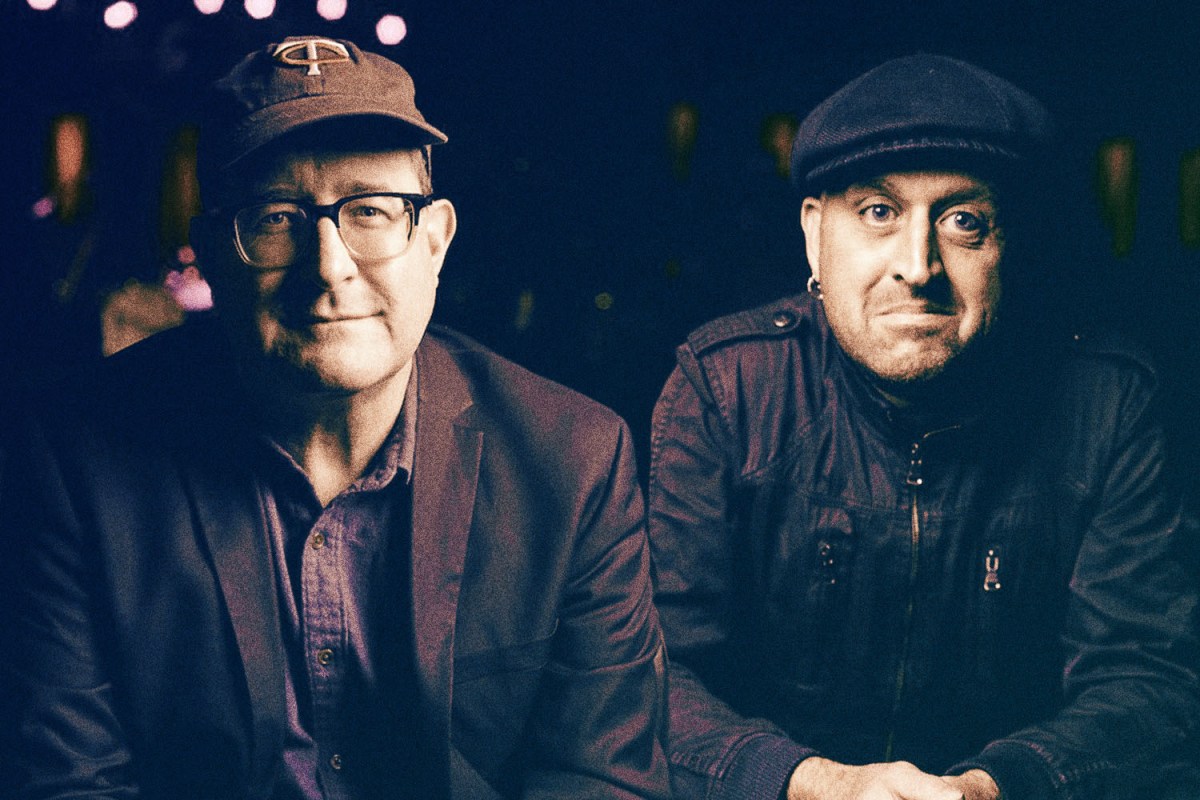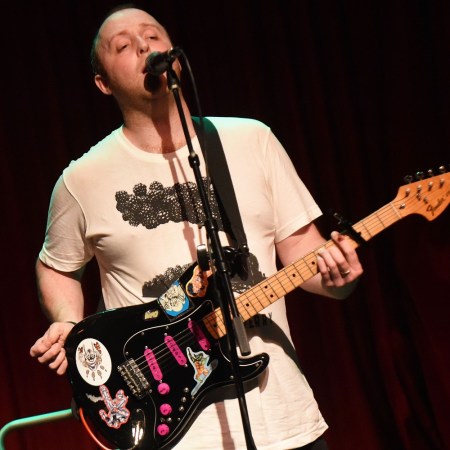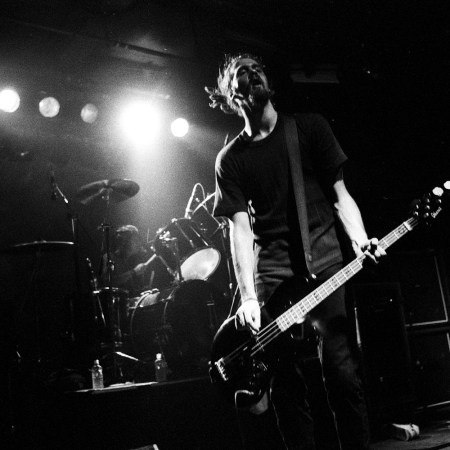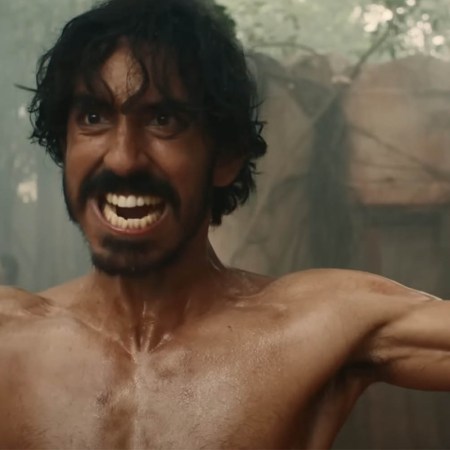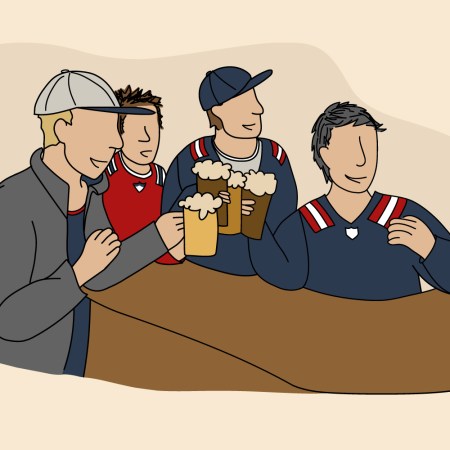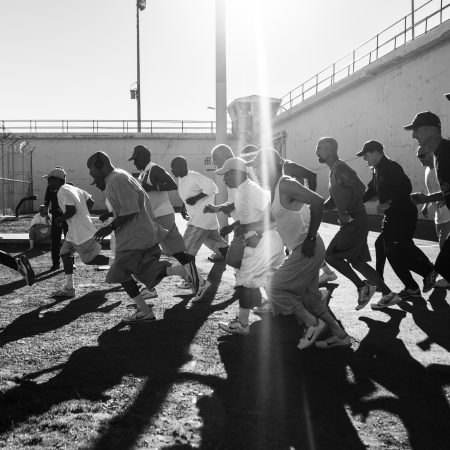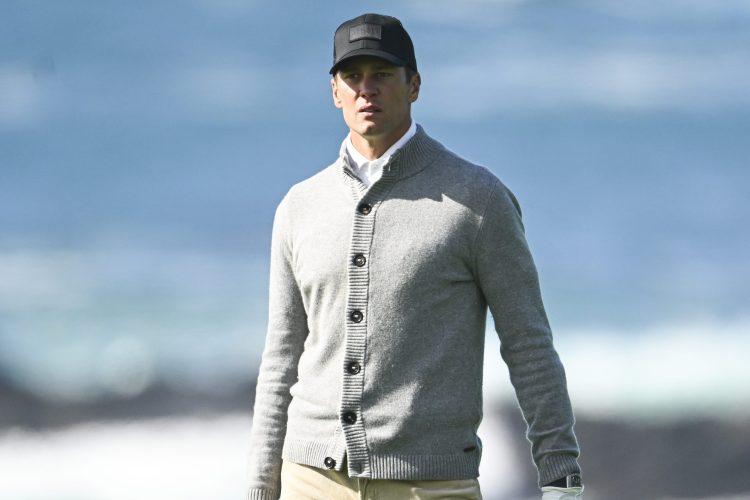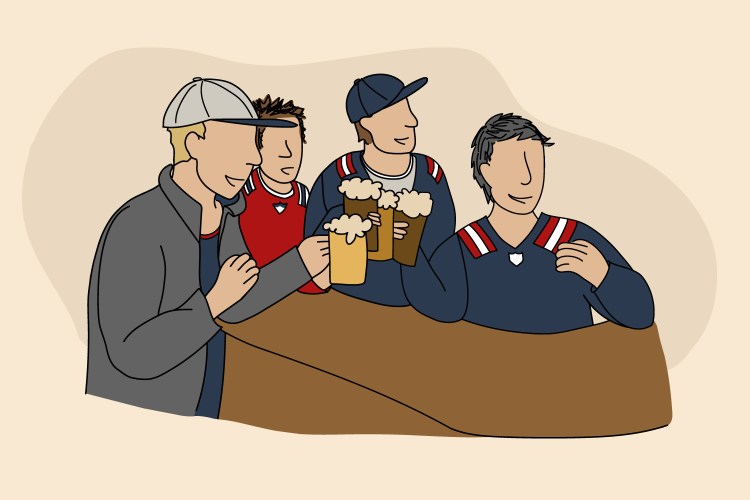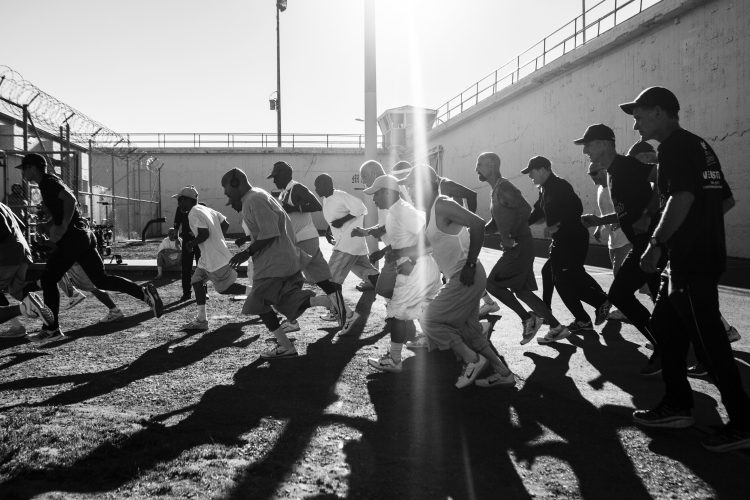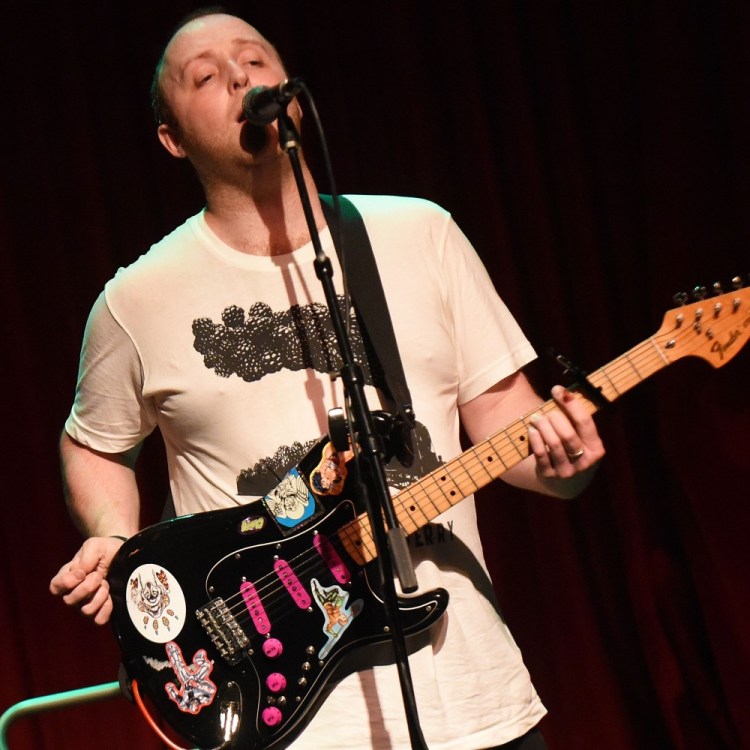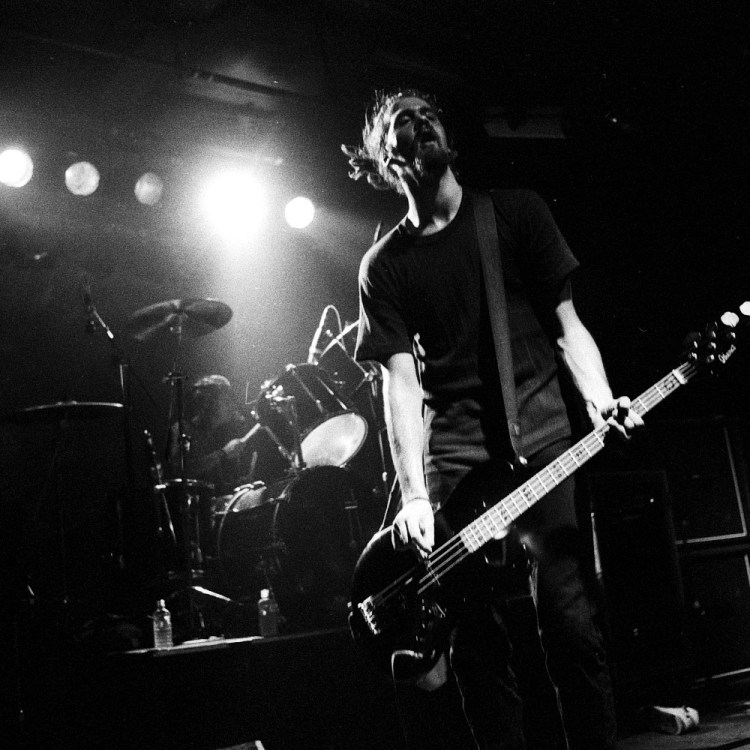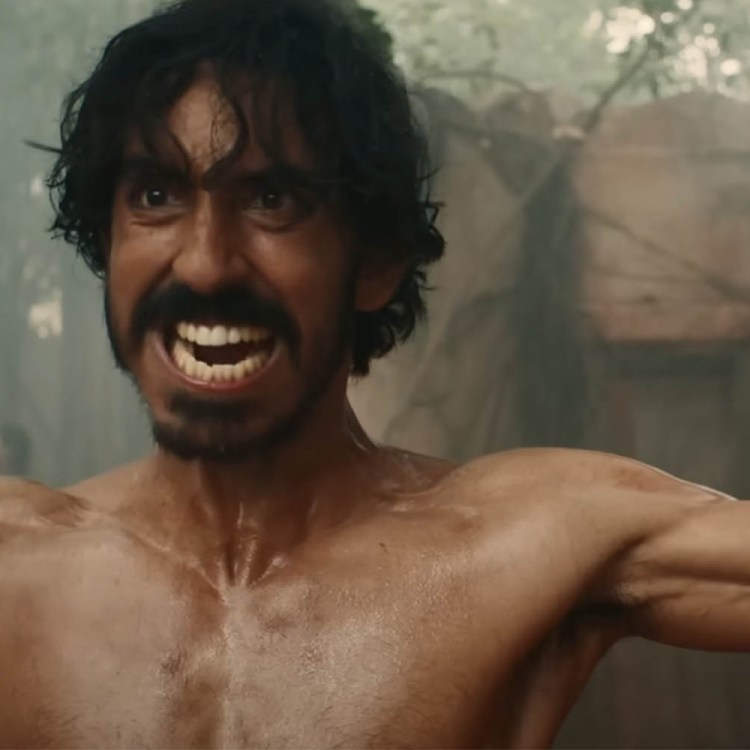At some point during the interview you’re about to read, which was conducted over Zoom earlier this week, piano player and multi-instrumentalist Franz Nicolay noted that the Hold Steady’s relationship with the press during this album cycle has benefited from the media’s desire to glom on to certain pre-cooked narratives.
“Everybody loves to write a comeback story,” he said. “The idea of a long-established band having a late-career resurgence is a pretty easy narrative to write.”
I smiled and nodded, as you do. But what I was really thinking was that it had somehow never occurred to me that they’d ever even left — an obvious prerequisite for a comeback story to exist in the first place
It’s true, though, that there have been breaks and lineup changes, side projects and, I suppose, at least the perception of minor dips in the quality of the material. But for the better part of 20 years, the Hold Steady has been one of the most reliable and singular rock bands working, their songs driven by an obsession with small-town punk and hardcore scenes and the characters that lurk within them, by an equal parts playful and earnest reverence for classic rock’s trappings as well as its endless potential for catharsis, and, especially of late, by what it means to get older — and not just as a rock band, but as a person, or as a group of people with a shared history and worldview, trying to make it through.
And making it through has become a considerably more difficult task for all of us over the past year. Open Door Policy, the band’s eighth full-length album, gives voice to that struggle despite having been written and mostly recorded before the pandemic even hit.
The band’s been cooped up at home, its six members spread out across the country. But they’re together in New York this week, rehearsing for a pair of live-streamed shows to be held at Brooklyn Bowl this weekend (get tickets here) — a significantly tweaked version of their annual Weekender event in London, but the best they could do under the circumstances. I caught up with singer and frontman Craig Finn and Franz Nicolay to talk about the new record, the pandemic, the future of touring and the fact that “middle-aged dad” may not be quite the insult people think it is.
InsideHook: I should congratulate you guys on the record charting this week. It’s your first time, right? First top 10? How does that feel after 17 years of doing this?
Craig Finn: First top 10, yeah. It’s an interesting time in history, where a band like us can do it, you know what I mean? We have a small but very committed fan base that can show up and make a first week. One of my friends congratulated me, and I pointed out all the ways that it’s different now and how few records you really need to sell to do it, and he said, “Stop being so fucking Midwestern about this. It’s a top 10 record.” I was like, “All right, yeah.”
Franz Nicolay: It’s one of those things for your parents, people you went to high school with, your aunts and uncles … they know The Tonight Show and they know the Billboard charts.
The first thing that struck me about the new record is just that it seems like a bigger production. The songs seem a little bigger, maybe a little bit more elaborate than Thrashing Thru the Passion. Was that something you had discussed before recording?
CF: Part of it was we’ve had the six-piece lineup of the band, which we’ve had basically since 2016, but we’ve written [a limited] amount of new music. I think by writing Thrashing Thru the Passion, we really got to the place of Open Door Policy, where we’ve figured out where everyone goes. Franz and Steve had not been in the band at the same time up until fairly recently. I think those guys did an amazing job figuring out their spaces together. I think in that way we found that bigger, more realized thing.
FN: I think sometimes people confuse a bigger sound with a louder sound, and it’s kind of the opposite. You know, it’s like with six people in the band, everybody gets to play less, but it gets to be a wider screen and you can cycle through the different dynamic shifts, and that makes it sound louder than maybe it is.
I know you recorded it before COVID, and you’ve said that certain themes seemed to carry some added resonance over this past year. Craig, what kind of headspace were you in that you were already grappling with those themes before the pandemic?
CF: Well, the pandemic didn’t jump out of a box. I mean, 2019 felt pretty heavy at the time. We had a politically divided country, massive income inequality that sort of seems like part and parcel of late-stage capitalism, and then all the mental health issues that go along with it. You don’t set out making a record to be about this. You just start writing a lot of songs, and then you look back and go, “Jesus Christ, this is what I’m talking about,” and it reveals itself to you a little bit.
I think in that sense, I remember in 2019 recording these songs and thinking, like, “This is pretty heavy. Is it too heavy? I don’t know.” Then 2020 comes along and kicks us all in the teeth, and it’s like, “Well, maybe it’s just right.” Obviously mental health is a big part of the record. A lot of people in the record seem to be struggling, and obviously 2020 is a mental health year like we’ve never seen before.
Music publications sometimes seem reluctant to heap too much praise on a more established band, just because it doesn’t feel like they’re uncovering something. Could you talk a little about how you feel like your relationship with the press has changed over the past 17 years?
CF: I guess, just as a music fan, I think it’s probably easier in some way to write about a new band, right? It’s a blank page. Also, I think the way we consume music today, as a fan I’m always searching for a new thing, so I don’t find myself removed from it necessarily. I think that with all this stuff at our fingertips, I’m always looking for something new to me, kind of like a fix. When I’m really psyched is when someone turns me on to a songwriter or something that has like five albums and I haven’t heard any of them. At this age, that’s like pay dirt. That’s cool.
FN: I think the way people need to write toward a narrative has benefited us a little bit on this record, because everybody loves to write a comeback story. The idea of a long-established band having a late-career resurgence is a pretty easy narrative to write.
CF: There’s a lot of boxing movies about the same thing.
I have a similar question about the relationship you have with your fans. I read an interview with Jeff Tweedy of Wilco recently where he talked about how he had to come to grips a while back with the fact that his newer material was never going to resonate with his fanbase in quite the same way as his older stuff, just by virtue of the fact that they’d had more time to spend with it, or maybe because of where they were in their lives when they discovered that music. I wonder how it feels for you and whether that relationship has changed over the years.
CF: My theory is that there’s different types of fans. There’s the one guy who has to hear his favorite song. There’s the one guy who has to get the most exclusive vinyl. There’s the other guy who has to see you the most times in concert, et cetera. I think you’re right in that if you have 15 years with a song, it can take on a lot of positive (or negative, but generally positive) weight. If that first song you heard is attached in your mind to a time when you had a lot of freedom, that can be a thing.
FN: I think a lot of people’s favorite Hold Steady record is the first one they heard. People who are susceptible to it, there’s the serotonin rush of the music, and then the rabbit hole of Craig’s lyrics is very intoxicating. If they take in the message that you can’t get as high as the first time, which is very central to the message, I think they’re prepped to meet us where we are now.
CF: Yeah. I was thinking about there’s a narrative, because people really seem to be enjoying the record. This is kind of a joke, but I’m just going to say it: I wonder if some people’s kids are getting old enough that they have a little more time. The kids are starting to go to sleepovers and stuff, and they have a little more time to put some music on the stereo and plug into it and be like, “This is great. Yeah, I love this song.”
Speaking of the rabbit hole, did Holly make a comeback on this record or what?
CF: You know, I don’t like answering those kinds of questions. I think it serves us all better to have some mystery.
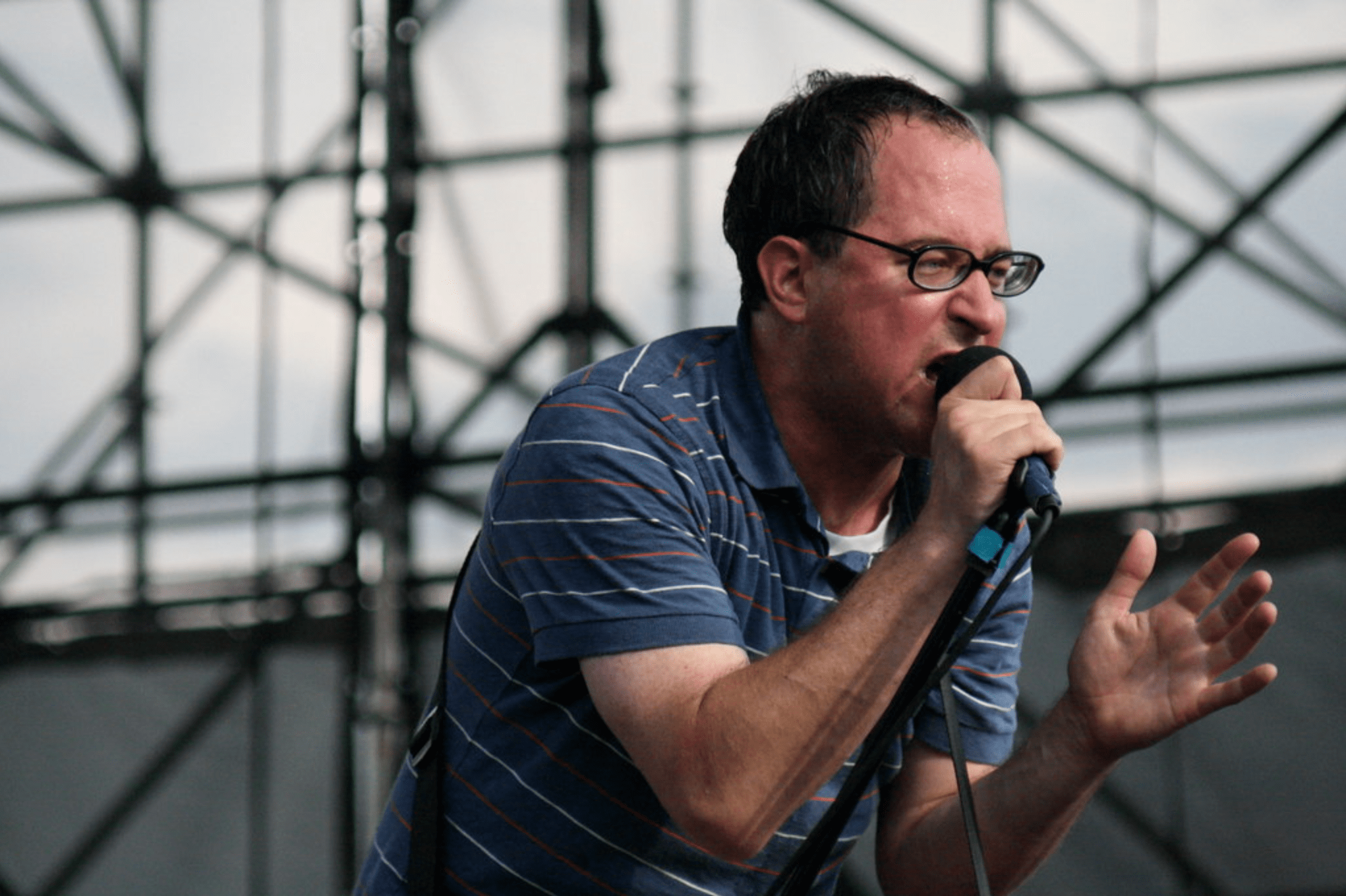
Fair enough. I feel like you guys have always had an interesting relationship with aging and with nostalgia. Even in your earlier material, you were often writing about aspects of youth culture that you were at least somewhat removed from, right? I feel like that sort of staggered relationship between where you are and what you’re writing about has continued to move forward throughout the course of the band’s career. How do you continue to navigate that?
CF: Yeah, I mean, I’ve always been obsessed with that — with aging gracefully. In my case, I had my midlife crisis when I was 28 and moved to New York and then started a band. I remember before we started The Hold Steady, I went and saw the Drive-By Truckers, and I was thinking about it. I really loved the show, and I remember thinking, like, “This band will never really be out of style. It won’t be of the minute, ever, but it’s built to last.” Coming out of indie rock, where things are very of the moment, I was trying to figure out how you build something that just stays.
Then lyrically and telling stories, I think there always is a gaze back of 15 years or so. Boys and Girls in America had a lot of songs about younger people, people who are 20 and making mistakes. Now that I’m almost 50, people in their mid 30s who don’t have the wind in their hair, so to speak, and maybe are feeling a little stuck … that’s more interesting to me, you know what I mean?
I think when you think about Springsteen, who’s obviously an influence and a hero of sorts, something like “Racing in the Streets” is super fascinating to me now. I mean, right in the beginning, he says his partner’s son. It’s like, this song’s got a stepson in it? That’s incredibly more complex than Johnny B. Goode or something. I don’t know. It seems like as you grow, those stories become maybe more complex and more interesting.
I wonder about the degree to which as a culture we fetishize newness and youth in general. And I wonder sometimes if we’re missing out by not placing as much value on people who have actually managed to live a little and learn some things along the way.
CF: I think in popular culture, maybe. Obviously it’s skewed young, and that’s probably some function of interest and some function of advertisers, but I don’t know.
FN: When I read people who don’t like the band, they seem to think “middle-aged dad” is a way sicker burn than it is. It’s just a simple fact. We’re middle-aged dudes. If that’s code for “they’re not that cool,” it’s like, speaking as a middle-aged dad, if you have any self-awareness, you’re perfectly comfortable with the idea that you’re not that cool.
CF: Yeah. I mean, those are facts. That’s like the sky is blue. People have children — I don’t, but people do — and being a good father is something to be proud of and to aspire to, not to be ashamed of. I think if you talk about dad rock … a middle-aged dad at a show with a bunch of 19-year-olds in the pit, that’s not a great look either.
So, obviously a lot has changed in the world in terms of race and gender in the past 15 years. Even in punk and hardcore and indie rock, the worlds that you guys come from, which are ostensibly very progressive, everyone’s had to do some reckoning in recent years. Is it something you’ve discussed as a band in any way, either lyrically, Craig, in terms of how women are portrayed in your songs, or even just in general making sure that your shows are a safe space for everyone?
CF: I’ve definitely rewritten things in a self-editing process. That’s a constant. I think that otherwise, it’s obvious that we have a pretty male fan base. I think that one of the things is making sure that there is a safe space for everyone while still understanding that it’s a rock show, you know? I wouldn’t say we’ve had massive sit-downs, but I mean, it’s just common sense, keeping an eye on it.
FN: We’ve got a pretty strong crew of female fans in the core fan base, too, who’ve been really good about staking out their space at the front.
Having been to a number of Hold Steady shows myself, I mean, there’s obviously the dude element at play, but I also feel like it’s become overstated.
FN: I think the joke about the line at the men’s room at The Hold Steady shows is a little hacky at this point. Obviously it expresses a truth, but I do think it’s overstated.
CF: Also, that’s [true for] a lot of rock bands. That’s sort of a function of rock and roll at this point. Which isn’t great, but it is.
Let’s talk about what you guys are doing this weekend. Could you just explain the Weekender? Obviously it’s very different this year?
CF: Our years are usually bookended by two sets of shows. Massive Nights, which is at the Brooklyn Bowl in early December, and then the Weekender, which is in London, and it’s in the first weekend of March. This is our fourth year of doing the Weekender. Last year’s Weekender was the last time we played live in front of people. It felt like we got it just under the wire.
This year, obviously current events prevent us from doing it properly or traditionally, so we’re going to the Brooklyn Bowl here in Brooklyn, which has become a home venue, and we’re going to play two live streams Friday and Saturday, and we’re going to go on at 3 p.m. New York time to try to give it preferential timing for Europe and the UK, where we’ve had an amazing fan base. In the UK especially.
It’s not the Weekender I hoped it would be, but we did do this in December for Massive Nights and it was spectacular. It was way better than we thought it would be, partially because we were able to see the fans. On the monitors in the club, we could see fans from their living rooms. People held up signs, held up their pets, held up whatever, and it was really cool. That made us excited to do the Weekender however we could.
There’s also some sad, convenient thing about all of this that’s kind of nice for fans, I think. Could you see any aspect of this sticking around as we move forward?
CF: I think we’re in the business of putting people in the room. I think that giving people an option to stay home … I don’t love that. That said, I think that we will see changes in touring. For one, there’s going to be a massive bottleneck, as far as everyone’s going to try to go on the road.
This model that we’ve been doing for the past few years where we do residencies, going into a town and playing three shows and choosing regionally, rather than going out on a big month-long tour, going to play three shows in Chicago, three shows in Nashville, three shows in Seattle, I wouldn’t be surprised if more artists started to do that, because I think we’ve found, for us anyways, it makes tons of sense. You do need an audience. We’re at a point where we’re able to deal with that. I have to guess that more people will try to do it that way.
I imagine this is probably the longest stretch you guys have had without touring in quite some time. What was your creative output like over the past year?
CF: I was able to do a lot. I really could write, I just couldn’t really edit. That’s the quickest way of saying it. I was able to generate a lot of content, and I couldn’t tell if any of it was good, so I have a lot stacked up.
What part of the equation was missing for you to not be able to take that extra step?
CF: I can’t tell. I think it was just the lack of my normal life, that I just sort of had nothing to put it up against. I have piles, but hopefully at some point there’s either a producer or someone that can look at it and say, like, “No, this is shit, this is all right, whatever,” but yeah. That’s where I’m at.
FN: It’s funny, because at the end of the year, my gut feeling about it was that I hadn’t been as productive as I would’ve liked to have been, but then when I started listing it out, it’s like, “Oh, I actually did a bunch of stuff.” It’s just the percentage. Because I was home so much, the percentage of it didn’t feel right. I think almost every musician I talked to has bought a bunch of gear and practiced a lot.
People are just going to be fuckin shredding after COVID.
CF: There’s going to be some shredders, for sure.
Is there a particular item that you guys have found yourselves relying on to get through quarantine, something you’re grateful to have had at your disposal?
FN: Craig’s heard me say this a couple of times now, but my wife and I got a piano in the house, an actual baby grand piano, and it really saved our mental health. Just giving yourself a present, having a nice thing in the house, and then also having this way to feel like you’re doing something and improving yourself. It’s been awesome.
CF: I would say the guitar I bought is my favorite thing. I’ve only had it a little bit, but I don’t know that an instrument’s ever given me so much joy. I’ve had Teles before, but I’ve never had an American Tele. At least this one is a world of difference. It feels adult. I’m not a big consumer, but the pandemic got the better of me and I discovered the joy of clicking on things. I got a new laptop and an interface for recording and some nice microphones. As an adult, I guess you have the potential to make it Christmas all the time.
This article was featured in the InsideHook newsletter. Sign up now.
